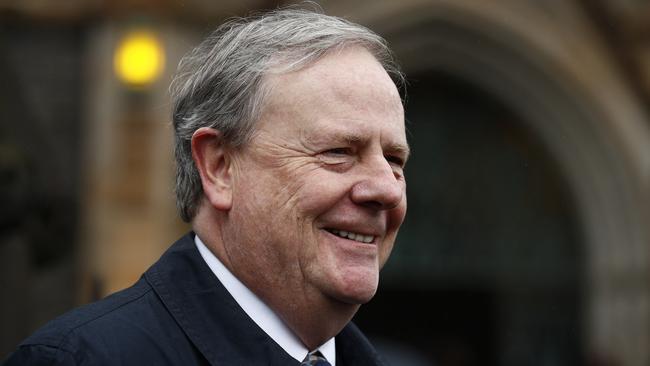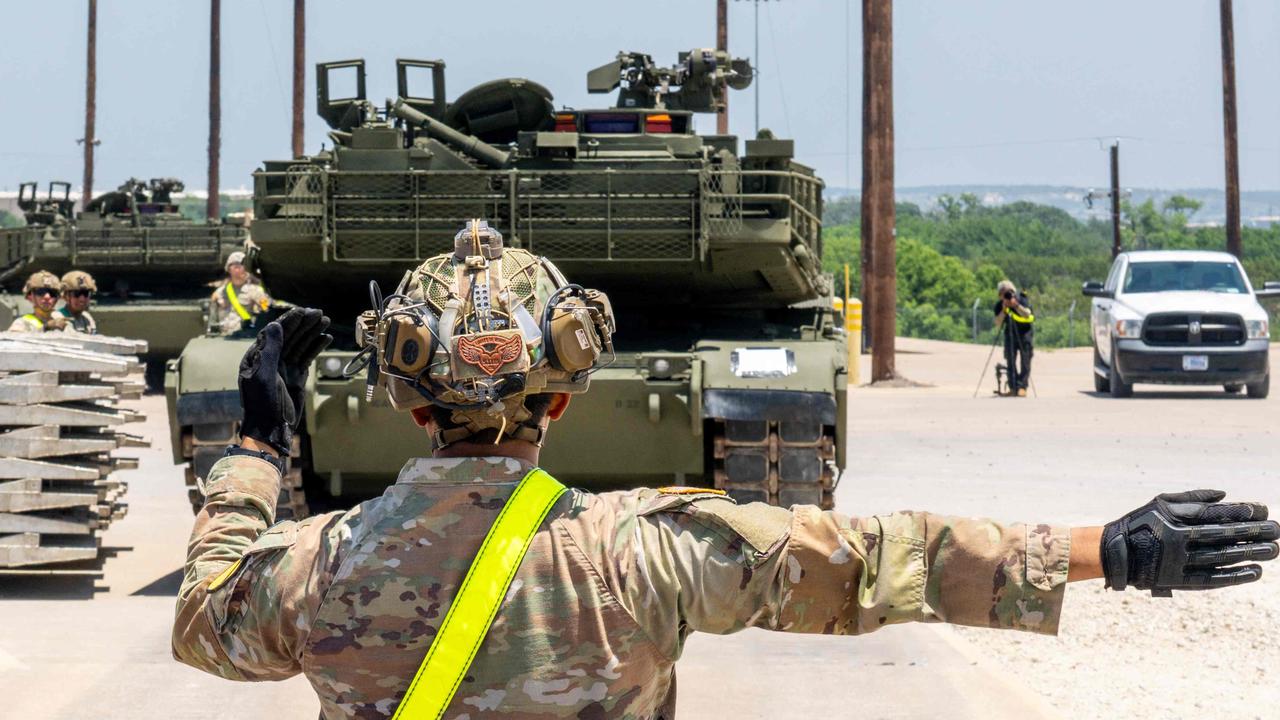Peter Costello-chaired Future Fund warns of lower returns ‘over the long term’
The Peter Costello-chaired sovereign wealth fund posts poor returns in the three months to March 31, discloses it is still trying to exit its Russian holdings.

Business
Don't miss out on the headlines from Business. Followed categories will be added to My News.
Future Fund chairman Peter Costello has warned investors should brace for an extended period of lower returns after the sovereign wealth fund’s performance turned negative amid rising inflation and the war in Ukraine.
With the nation poised for the first increase in the official cash rate since November 2010 if the Reserve Bank pulls the trigger at its monthly meeting on Tuesday, Mr Costello said rising inflation was a key cause of the sharp downturn in global equity markets.
The downward trajectory of local markets continued yesterday, with the ASX200 dropping 88 points or 1.18 per cent to 7347.00, bringing the decline over the past 12 months to 4.57 per cent. Health stocks led the local bourse lower, with Imugene and Pro Medicus falling 13.6 per cent and 7.8 per cent respectively.
On rates, consensus has firmed that the RBA will start tightening monetary policy with an expected increase in the cash rate from 0.1 per cent to 0.25 per cent on Tuesday or next month, expected to be the first in a series of rate hikes over the next two years.
The Future Fund – established in 2006 to provide for the superannuation liabilities of federal public servants – hit $249bn in funds under management by the end of the March quarter, and was at pains on Monday to point out that it had achieved a 10-year return of 10 per cent per annum against its target of 6.4 per cent.
The fund’s recent performance has been less impressive, however, returning negative 1.5 per cent for the quarter to the end of March and just 1.9 per cent for the financial year to date. With inflation recently hitting 5.1 per cent in Australia and the fund targeting a return of 4-5 per cent above this measure, it is currently well off the pace on a financial year basis, but says its one-year return is now at 11.8 per cent against its target of 9.1 per cent.
Mr Costello said the “flat’’ Australian equity markets were largely due to rising inflation “which will lead to higher interest rates around the world and in Australia’’. “In addition, the Russian invasion of Ukraine has added to risk for international investors,’’ he said in a statement. “Following Russia’s invasion of Ukraine, the Fund moved to sell down all holdings in companies listed on the Russian stock exchange.’’
Mr Costello said sanctions on Russia and the closure of the Moscow stock exchange had hampered attempts to exit some positions, but the fund’s holdings would be wound down “as market conditions allow’’.
Mr Costello said the fund had recently “performed well in a very challenging environment’’, and had exceeded its target returns across long-term time horizons.
“As central banks tighten monetary policy to rein in inflation and geopolitical tensions continue to create shocks in investment markets, we have been positioning for what will be a challenging and volatile future,’’ he said.
“As we have been saying for some time, investors should expect lower returns than in the past over the long term.
“Our dynamic and disciplined approach to investing is designed to help us balance the return and risk objectives of our mandate.”
The Future Fund’s largest exposure is to global equities (22.4 per cent), followed by private equity (16.8 per cent), alternatives and cash. It has 8.5 per cent of its assets in Australian equities, the March update shows.
The fund currently has $30.3bn sitting in cash, or 15.1 per cent of its assets, against 19.8 per cent at the end of December.
On the interest rate front, CommSec is predicting the RBA will sit on its hands for another month, while HSBC Global Research says a rate rise is “priced in’’. The May 21 federal election and the fact that the RBA has indicated it wants to see a solid lift in key wage indicators due out in mid-May and early June, alongside stronger inflation, means there is some doubt.
“The RBA is independent and will no doubt act as it sees fit to achieve its mandate,’’ HSBC said. “But raising the cash rate 18 days before an election – the first hike in over a decade – would put the RBA right in the political mix.
“A final challenge comes from the global backdrop, as the sharp fall in China’s April Purchasing Manager Index, surprise contraction in US first quarter GDP and the energy crunch in Europe remind us, global growth risks are to the downside.’’
HSBC says if the RBA does decide to move on interest rates a case could be made for a 50 basis points move.
“This would be commensurate with a marked change in the view on inflation,’’ the bank’s economist wrote. “It would also be a significant change of the RBA’s narrative and the biggest move upwards in the cash rate in over 20 years. A dramatic move.’’
The last time the RBA increased rates was in November 2010, when it increased the cash rate by 25 basis points to 4.75 per cent. A year later it started cutting, with the official cash rate eventually hitting 0.1 per cent in 2020.
More Coverage
Originally published as Peter Costello-chaired Future Fund warns of lower returns ‘over the long term’





